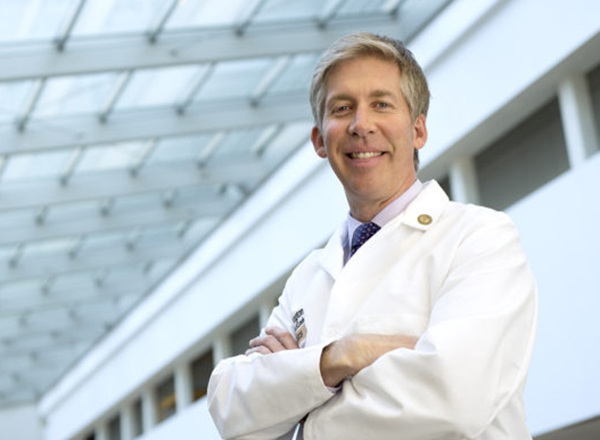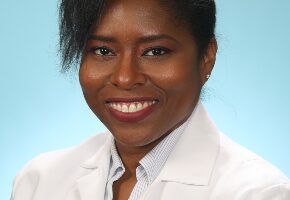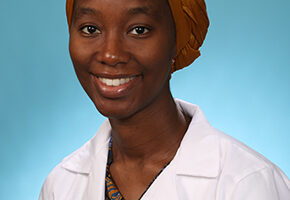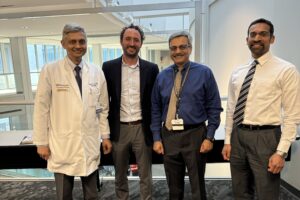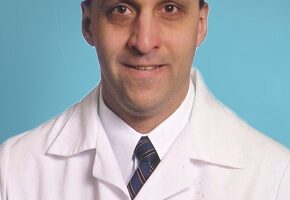Maddox: Remote monitoring, AI to play key roles in the future of cardiology (Links to an external site)
Thomas M. Maddox, MD, SM, professor of medicine and vice president of digital products and innovation at BJC HealthCare, Washington University School of Medicine, gave a presentation on new technology advances at ACC.24, the annual meeting of the American College of Cardiology (ACC). He then spoke with Cardiovascular Business, providing insights into cardiology’s future.
Hammond Awarded Harold Amos Faculty Development Award
Gmerice Hammond, MD MPH, Instructor in Medicine, received a Harold Amos Faculty Development Award for her project entitled “The Impact of the ACO REACH Program on Racial Inequities in Heart Failure.” The study examines whether a new Medicare payment program helps reduce gaps in care and outcomes for Black patients with heart failure. The Harold […]
Dr. Pan Ma joins the Department of Medicine (Links to an external site)
Dr. Pan Ma joined the Department of Medicine in the Cardiovascular Division as an instructor in May 2024. As a researcher, she has made significant contributions to the understanding of myocarditis disease. Her work has been published in numerous peer-reviewed journals and presented at prestigious conferences, earning them recognition as a competitive early career investigator.
Zainab Mahmoud, MD, MSc funds her K23 (Links to an external site)
Congratulations to PROUD-MED Scholar Zainab Mahmoud, MD, MSc (Internal Medicine, Cardiology) on the funding of her K23 “Improving Maternal Cardiovascular Outcomes Through the Implementation of a Hypertensive Disorders of Pregnancy Bundle in Nigeria”, 1K23HL173684-01.
Cardiovascular Faculty Complete Leadership Course
Recently, four members of the Cardiovascular Division faculty completed a 16-week pilot leadership course on the Fundamentals of Performance Improvement and Change Management presented by the Department of Medicine. Sixteen faculty members participated across the school of medicine: representing the Cardiovascular Division were Division Chief Dr. Sumanth Prabhu, and Drs. Mustafa Husaini, Justin Sadhu, and Sudhir Jain.
Cresci Vice-Chair of AHA Statement in Circulation
Associate Professor of Medicine and Associate Director of the Wash U Hypertrophic Cardiomyopathy Center, Dr. Sharon Cresci is Vice-Chair on a new statement published this week in the journal Circulation on behalf of the American Heart Association.
Kurz Retires After 30 Years In Cardiovascular Division
Dr. Howard Kurz, Professor of Medicine in the Cardiovascular Division, will retire at the end of June. Dr. Kurz has served as Director of the Interventional Cardiology Training Program as well as Director of the Cardiac Procedure Center Catheterization Laboratory. He has been an essential part of the interventional cardiology team, and his mentorship and leadership will be greatly missed.
